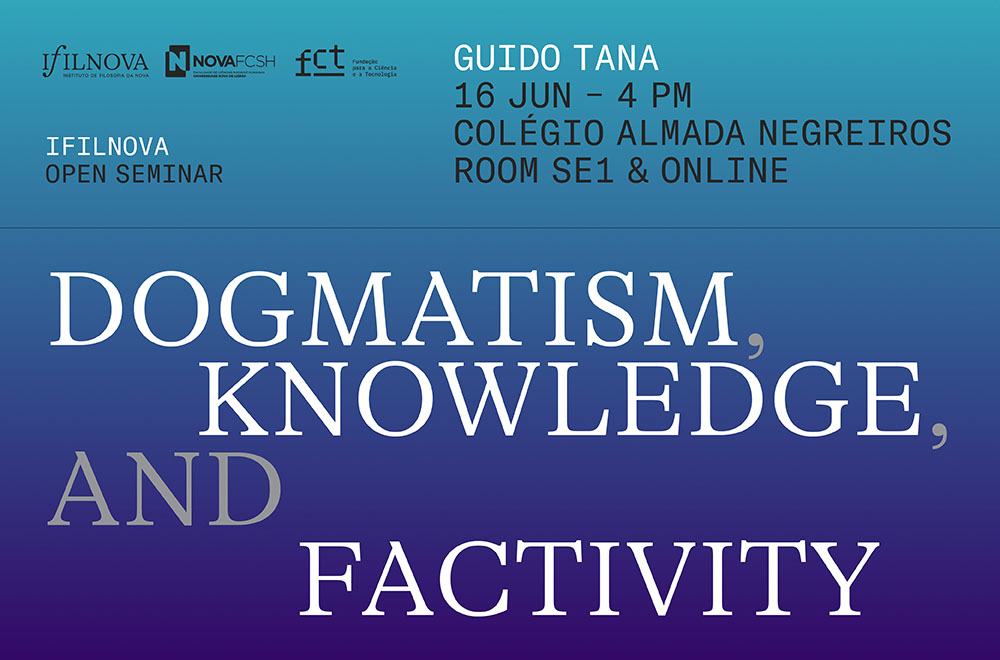Dogmatism, Knowledge, and Factivity

Knowledge breeds dogmatism. This appears to be the paradoxical consequence of knowledge entailing truth. It implies that if S genuinely knows p, then S is entitled to reject a priori any counterevidence against p as misleading. However, such a stance appears irrational because unrestrictedly dogmatic. It appears intuitively impossible to dismiss beforehand all future counterevidence to our knowledge-claims.
This presentation analyses and assesses some proposed solutions of the dogmatist paradox and presents a possible, albeit revisionary, way out. Specifically, whether it really is irrational to be dogmatic in the way described above, and whether it is possible to utter genuine knowledge-claims while allowing for knowledge defeasibility.
It is argued that both approaches fail to solve the paradox. The former delivers a picture of knowledge ill-suited for human beings. The latter fails to explain the impermissibility of endorsing a dogmatic stance. Fallibilism’s attempts to detach knowledge and certainty are shown to fail on similar grounds.
The analysis understands the paradox as a dilemma: either we can explain how dogmatism is rationally avoided while endorsing our knowledge-claim or revise the factivity condition. Some possibilities concerning this latter route are suggested, arguing that it might be the least problematic option available.
Everybody is welcome to join!
For online participation, please use the following link.
This event is organized by E. Rast. The purpose of this seminar series is to give researchers a platform to discuss ongoing work and problems in the philosophy of language, epistemology, argumentation, metaethics, and related areas. For administrative inquiries, please contact Erich Rast at erich@snafu.de.

